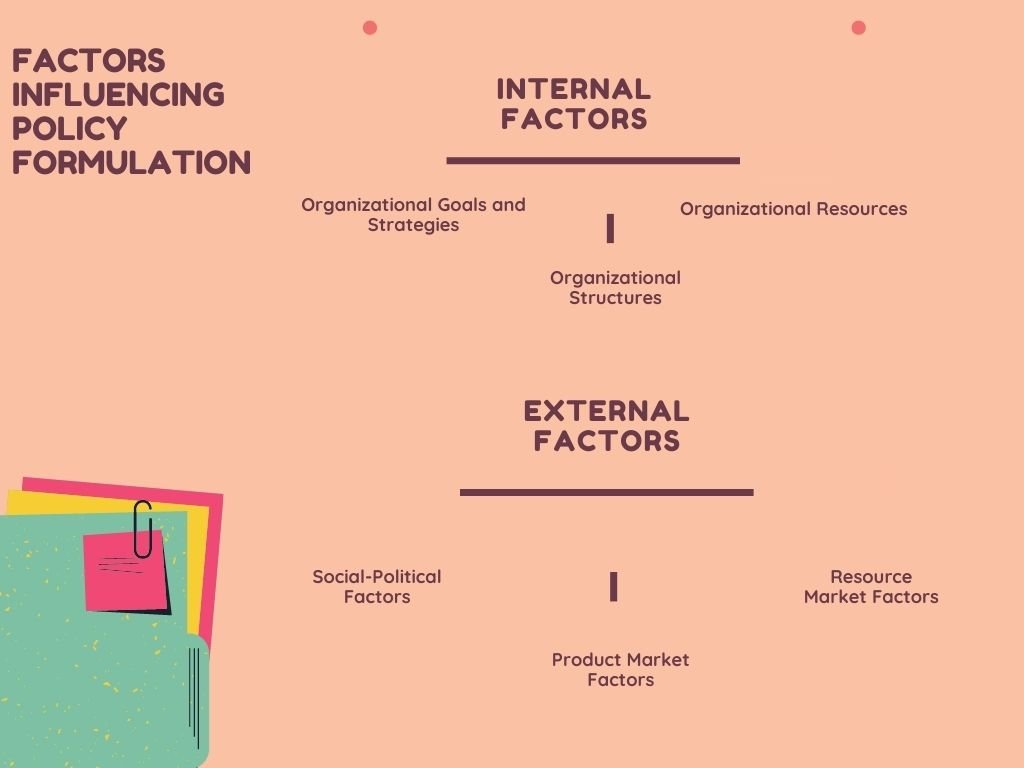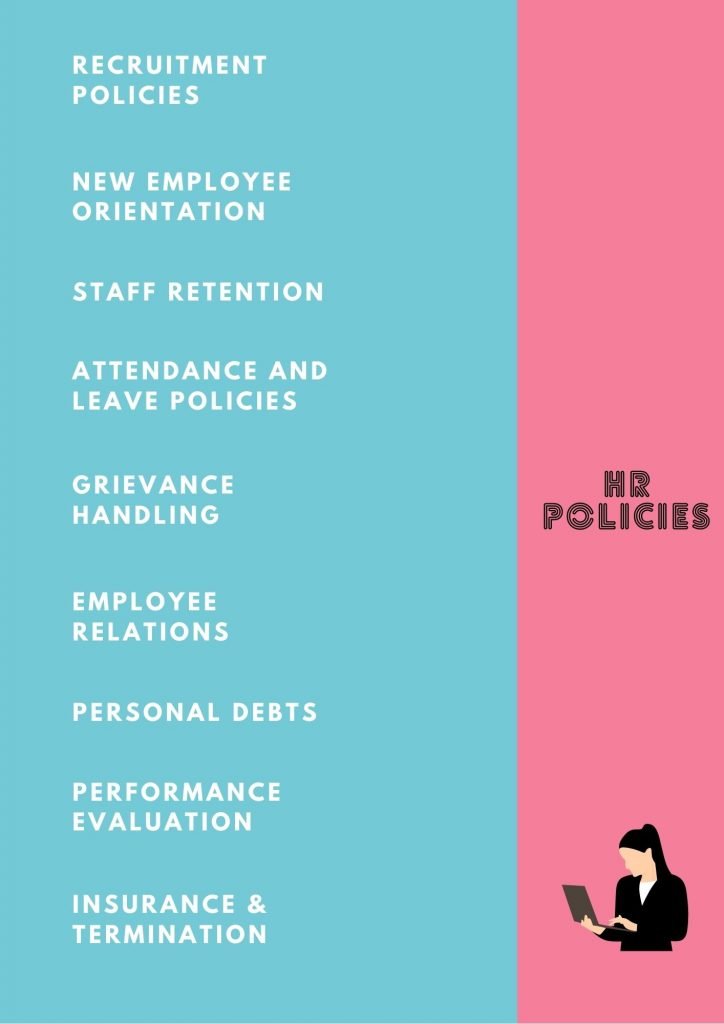The basic factors that influence policy formulation are
1. The objectives of a business firm
2. Its management structure
3. Economic and financial resources available to it at a particular point of time
4. Attitudes, social values and norms of the top management
5. Fiscal and monetary policies of the government
6. Policies of sister concerns and business associations
7. Government regulations and control measures
8. Public opinion and expectations from business etc.
You can never evade your responsibility towards the society and your policies must incorporate statements that reflect your interest in the welfare of the society.

In corporate business environment, where voluminous business activity is carried on, corporations have very well understood the fact that, acquisition and utilization of resources from the society has to be repaid in the form of contributions to societal welfare.
Otherwise their image might get tarnished. Moral and ethical values of a society also influence the mind set of business persons.
In countries like India, where people ardently follow traditions and customs, a business person hailing from such a family will definitely try to maintain minimum ethical standards both in personal as well as business environments.
Business policies cover all the functional areas such as production, marketing, personnel and finance aspects. Major policies pertaining to overall objectives, procedures and control affect the organization as a whole.
Minor policies on the other hand, cover relationship in a segment of an organization, with considerable emphasis on details and procedures. Such policies are an outgrowth of major policies and preserve their unity of purpose.
They meet the day-to-day requirements of the departments and are generally decided at the sectional and departmental levels.
Various Corporate Policies:
Strategic business policies cover aspects such as product-mix, promotion-mix, market-mix, administrative policies etc.;
HR policies cover a wide range of aspects such as pay, promotions, recruitment, selection, induction, training and development, pension, disciplinary action, quality of work life and so on.

So, to attain clear-cut objectives, firms need related business policies, in the absence of which, the firm may lose grip and direction in the overall management of the corporation.